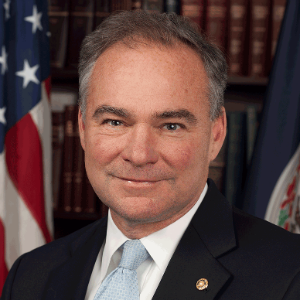
This legislation would build out the systems necessary to create a public health infrastructure to combat Alzheimer’s disease and promote brain health. In addition to Kaine and Collins, the bill was also sponsored by Senators Catherine Cortez Masto (D-NV) and Shelley Moore Capito (R-WV). The legislation will now advance to the full Senate for consideration.
Kaine’s family, like nearly 150,000 families in Virginia, knows what it’s like to have a loved one with Alzheimer’s. Kaine has repeatedly called for action to combat this disease. During the HELP Committee’s markup of the legislation today, Kaine discussed how important passing the BOLD Act is to millions of American families.
“Everybody in this place has an Alzheimer’s story that’s directly related to their family. I have a sister-in-law who was diagnosed at age 54, and in just casual conversations with colleagues we all have these stories and that’s not just the United States Senate, that’s the entire American population,” Kaine said. “Over 150,000 Virginians have Alzheimer’s. That number is expected to grow by 35 percent in the next 10 years. And it’s interesting: 150,000 plus with Alzheimer’s, the number of family caretakers in Virginia is 460,000. So it’s about 3 family caretakers for every person that has Alzheimer’s and I think those of us who have experience know how complex the caretaking arrangements are and how much our caretakers need support. So I’m very happy to work together with Senator Collins on this.”
Ahead of the vote at the hearing, Ranking Member of the HELP Committee Sen. Patty Murray said, “Alzheimer’s, which affects one in ten people over age 65, is a devastating disease. It is hard on patients fighting to hold on to cherished memories and a feeling of loss of control in their daily lives. It is hard on family members, on friends, on caregivers who are often the family members trying to help a loved on grapple with the day to day challenges of the disease while coping with their own grief and daily needs. This bill takes important steps to bolster our public health response to Alzheimer’s with new partnerships, new tools, and new efforts to build a better support system to ease the burden for families who are affected by Alzheimer’s.”
“The BOLD Infrastructure for Alzheimer’s Act is an important step to bolster our public health response to Alzheimer’s, a devastating disease impacting millions of Virginians and other Americans,” said Alzheimer’s Association Chief Public Policy Officer, Robert Egge. “We are grateful to Senator Kaine for his support of the bill and his contributions to advance policies to improve the lives of all those affected by Alzheimer’s.”
This legislation would apply a public health approach to Alzheimer’s disease by establishing a modern infrastructure for the prevention, treatment, and care of Alzheimer’s and related dementias. Coordinated primarily by the Centers of Disease and Prevention (CDC), it would establish:
1. Alzheimer’s Disease and Related Dementias Public Health Centers of Excellence dedicated to promoting effective Alzheimer’s disease and caregiving interventions as well as educating public health officials, health care professionals, and the public on the most current information and research related to Alzheimer’s disease, including cognitive decline, brain health, and health disparities.
2. Cooperative Agreements awarded to State, Local, and Tribal Health Departments to develop and carry out evidence-based Alzheimer’s interventions, including supporting early detection and diagnosis, reducing the risk of potentially avoidable hospitalizations, improving caregiver support and care planning, among others.
3. Improved Data Analysis and Timely Reporting that would help ensure that data on Alzheimer’s, such as cognitive decline, caregiving, and health disparities are analyzed and disseminated to the public in a timely manner.
The BOLD Infrastructure for Alzheimer’s Act is supported by the Alzheimer’s Association, Alzheimer’s Impact Movement, National Association of Chronic Disease Directors, and the National Association of Counties. Click HERE and HERE










